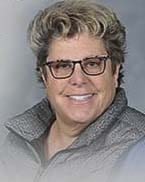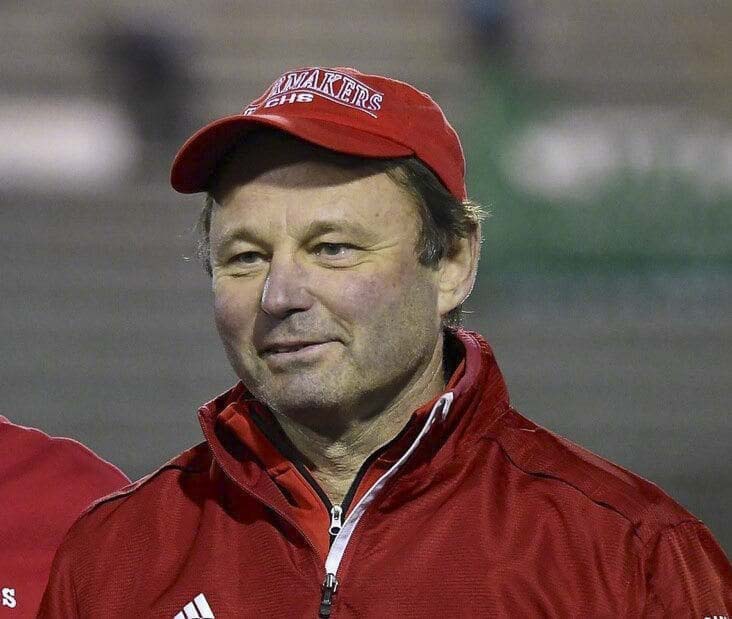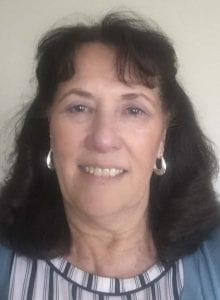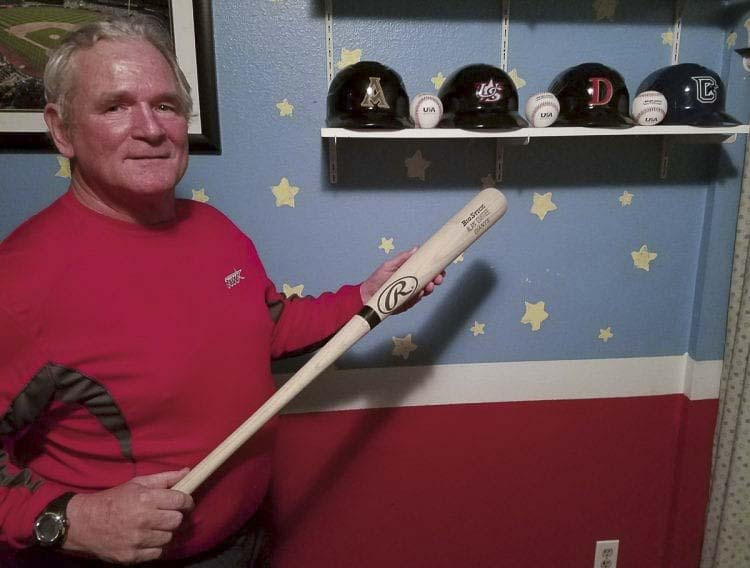All team sports, not just football, will have seeding system for state competition
The feedback from football must have been, for the most part, positive.
The seeding process is expanding for high school sports.
The Washington Interscholastic Activities Association used seeding committees the past two seasons for the state football playoffs. Now, seeding committees will be in place for all team sports.
Eli Sports Network reported the news late last week, and the WIAA said Monday that an official release should come soon. Teams will still qualify for state through competition — committees will not be determining state-bound squads — but those teams will be seeded by the committees for the state tournaments.
Clark County Today interviewed five legendary coaches and athletic administrators from the region Monday. All were in favor of the committees, and all said they would be interested in being part of the solution of making for balanced brackets.

“I think it’s a positive move,” said Leta Meyer, who retired last year after nearly 40 years as an educator, coach, and athletic director in Evergreen Public Schools.
Roland Minder, who won a total of five state championships leading Camas boys and girls soccer, said he would have preferred this system back when he was coaching. So, too, would Al Aldridge of Prairie girls basketball. He won six state titles with the Falcons.

Aldridge and Minder could remember many years when the best two teams in the state played in the quarterfinals.
Don Freeman, Hall of Fame baseball coach most known for his days at Prairie, said he used to be frustrated to see two or three of the best teams in the same regional.
And Chelinda Dettorre, a Hall of Fame volleyball coach who shined at Prairie and Heritage, said a committee would likely bring more fairness to the process.
While football fans and pundits argue every year if the committee “got it right,” it is important to note that there is no perfect bracket. That was never the goal. The mission was to ensure the best teams weren’t playing each other in the early rounds of competition.
For the most part, that has been accomplished in football.
In basketball, the WIAA has been using RPI to seed the brackets in recent years. Mathematical formulas will surely be used in the process, but now committee members can use rankings as an aid to seed a bracket, but not necessarily the be-all, end-all.
For football, committee members have been made up of coaches, former coaches, administrators, and members of the media. There is an application process. The WIAA expects the same make-up for volleyball, girls soccer, slowpitch softball, boys and girls basketball, boys soccer, baseball, and softball.
A few coaches from Southwest Washington have been on the football committees. The hope is for the region to be represented in all sports, as well.
“I think it is important that we have a voice and represent our schools,” Meyer said. “We have some of the toughest leagues and best teams in the state in our area. It would be beneficial to have someone on the committees to represent those schools, those teams, and those kids.”
Meyer has coached a number of sports plus she was the athletic director at Heritage for years. Even in retirement, she remains a fixture behind the scenes, helping with events and planning in the GSHL. She is certainly qualified to be on a seeding committee.
“You want to take the politics out of it. Look at the teams. Look at what they’ve done. And try to make the best decision for everyone,” Meyer said. “You’re bound by your values and what’s the right thing to do. Most everyone is trying to accomplish that, because it’s for the kids, to give them a great experience.”
Aldridge said a committee for basketball would be “awesome.” He never coached with the current RPI system. He said the RPI is better than the old way of determining brackets but still has its flaws.

He did not like that in the first year of RPI, teams playing out-of-state games against quality competition were not rewarded by the formula.
“I’ve always felt that made my team stronger, to be able to play nationally ranked teams,” Aldridge said.
The human element allows for an argument to be made for this team, or that team, the squads that might have a worse record but a better resume.
If he were on a committee, Aldridge would also propose that teams from the same league don’t face each other early. Move the seeding around by a spot or two if it means keeping two Clark County teams from eliminating each other, for example.
Aldridge is no longer coaching high school basketball but remains a huge part of the sport through club ball and state associations.
“I’d like to do it,” he said of being on a committee.
“As long as the local coaches would leave you alone if they didn’t like your decision,” he said with a laugh.
Minder has an interesting memory of a flawed bracket.
Back in 2010, his boys squad was ranked No. 2 in the state and No. 6 nationally. The Papermakers were playing Shorecrest, No. 1 in the state and No. 3 nationally.
“Probably the best high school match I’ve ever been in,” Minder said. “Just an incredible battle.”
It was in the quarterfinals, though.
“That should have been the state final,” Minder said. “Seeding would have helped that.”
Minder said he would be interested in being on the soccer committee but if parameters and guidelines are in place.
Chelinda Dettorre has 24 years of head coaching experience in volleyball. She retired a few years back, but now is an assistant at Mountain View.

“It’s an interesting idea,” she said.
She would hope that whoever is on the committee gets a chance to see all the teams they need to see.
In football, committee members did have access to HUDL highlights. The guess is coaches in the other sports would allow for access to video archives.
Dettorre said quality teams facing each other in the first or second rounds happens more often than one would think. This new system should change that.
“I think I might be” interested, she said. “I’d have to know more about it and what was involved. But it does add a little more fairness to it.”
Freeman was in Germany in March, preparing to coach a baseball team there before he came home to be with family during the pandemic. He is not sure where he will be next spring. But if he is in Washington, he said he would love to be a committee member. After all, with more than 40 years of coaching experience, the hall of famer knows just about everyone in the state who is associated with baseball.

There have been many years, he said, when one region had two or three of the best teams in the state, while another region might have had three or four weaker teams. People on a committee could make sure three quality teams are spread out across the state for the first two rounds (regionals) of state tournament play.
“I’ve always wondered why we can’t really do a good job,” he said.
Common sense should prevail, he added.
Details on how to apply for a committee should be released soon by the WIAA.
Some of the biggest names in coaching agree: Southwest Washington should have representation in all sports.




